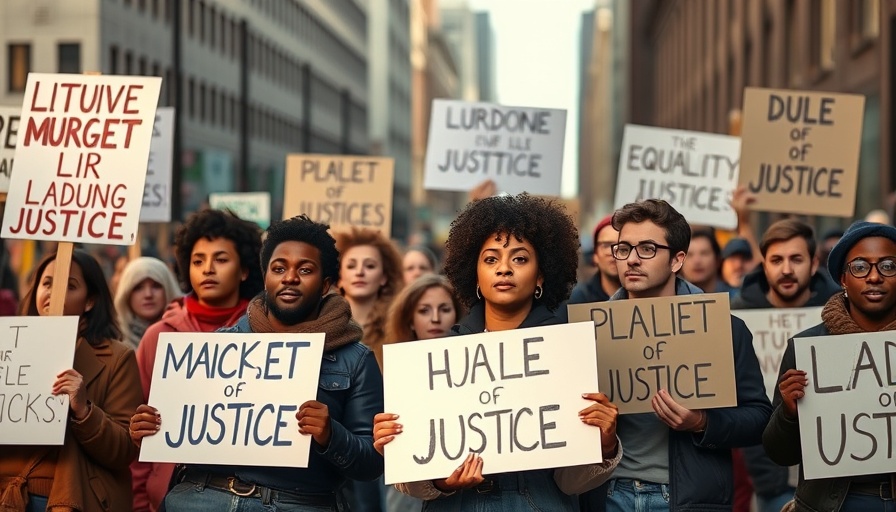
Understanding the George Floyd Protests: A Snapshot of Activism
The protests ignited by the tragic death of George Floyd resonate with many as a pivotal moment in American history. Coalescing around the need for justice and racial equality, these demonstrations have transformed from a local outcry into a global movement.
A Historical Context: The Roots of Racial Injustice
The ongoing fight against systemic racism in America is deeply rooted in the nation's history. The Civil Rights Movement of the 1960s challenged racial segregation and discrimination, yet the echoes of that struggle still reverberate today. Events like the assassination of Martin Luther King Jr. and the riots that followed showed us how fragile the progress toward racial equity can be. By understanding this background, we begin to grasp why protests today are not just reactions to specific incidents, but part of a long-standing struggle for justice.
Social Impact: Why These Protests Matter
For many, the George Floyd protests represent more than a moment in time; they symbolize a collective exhaustion and frustration with systemic racism. The widespread participation—including diverse groups of young people—highlights the intergenerational connection to this cause. This inclusivity plays a crucial role in creating change, pushing society to confront uncomfortable truths about race and justice. The conversations sparked by these protests are allowing communities to reflect on their values and actions.
Future Predictions: Where Do We Go From Here?
As the protests continue to reshape conversations surrounding race, a key question arises: What does the future hold? Activists are optimistic that sustained engagement can lead to genuine policy changes. Recent legislative efforts, including police reform discussions and re-examinations of how communities enforce law, reflect this shift. However, whether these changes produce meaningful outcomes will depend on the unwavering commitment of activists and the responsiveness of policymakers.
Counterarguments: A Spectrum of Perspectives
While many support the protests and their objectives, others raise concerns about the methods and impact of activism. Some argue that the focus on defunding the police may undermine public safety. Meanwhile, others claim that protests can escalate tensions, driving a wedge between communities. Acknowledging these counterarguments is vital for engaging in critical dialogue and finding a middle ground that fosters understanding.
The Emotional Impact: A Collective Journey of Healing
The protests have also evoked a wide range of emotions—from anger and grief to hope and resolve. Participants recount their experiences, sharing stories of joining together in the face of injustice. This collective action not only fosters a sense of unity but also aids in healing. People are discovering new connections and commitments to fighting for equity and justice, forging a pathway for a more inclusive future.
Call to Action: Your Role in Shaping the Narrative
As the conversation about racial equity unfolds, everyone has a role to play. Engaging in discussions about race, volunteering in community organizations, or supporting legislative initiatives can help drive the momentum of change. Each action contributes to the larger narrative of justice and equality.
 Add Row
Add Row  Add
Add 



Write A Comment